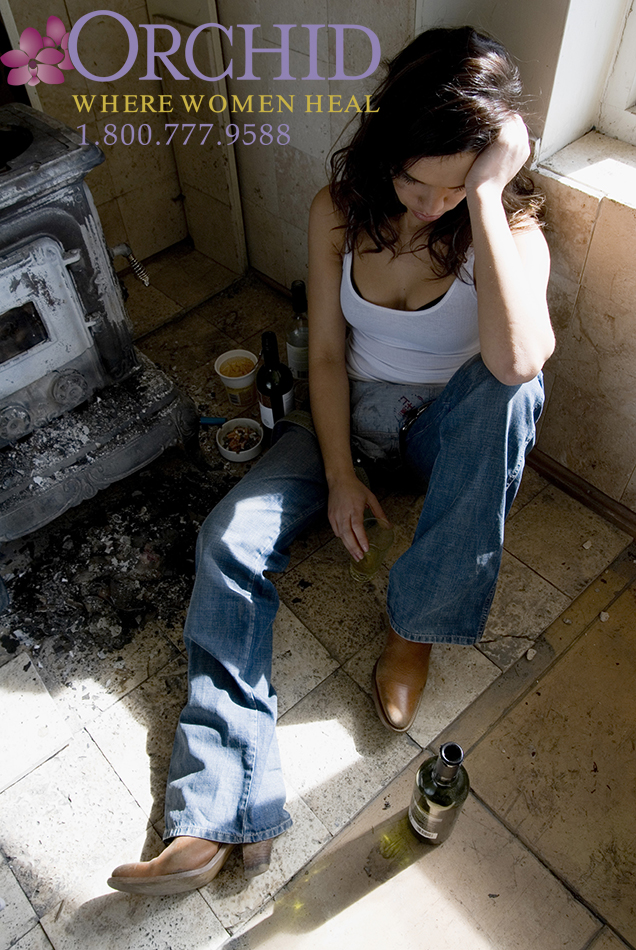Women, Depression, and Addiction

Addiction and depression are common coexisting conditions, and statistics show that women who struggle with substance abuse are at an even higher risk of depression. When a woman has a depressive disorder, it interferes with daily life and normal functioning, and causes pain for both the woman with the disorder and those who care about her. The percentage of women with depression and addiction, or who show signs of post-traumatic stress disorder (PTSD), is significantly higher than it is for men. To add to the equation the mortality rate for women struggling with addiction is 50% to 100% higher than for men.
Women, Depression, and Addiction: Unique Depression
While The Epidemiologic Catchment Area study conducted by the National Institute on Health reported that almost 1/3 of individuals with depression had a co-existing substance use disorder at some point in their lives, The National Comorbidity Study found:
- Women with who are alcohol dependent have 4 times the rates of depression
- More women than men are likely to be diagnosed with depression in any given year.
Scientists are examining many potential causes for and contributing factors to women’s increased risk for depression. It is estimated that the cause could be:
- Genetic
- Biological
- Chemical
- Hormonal
- Environmental
- Psychological
- Social factors
All of which interconnect to contribute to the development depression. Some forms of depression with factors unique to women include:
- Premenstrual dysphoric disorder
- Postpartum depression
- Menopause
Women, Depression, and Addiction: Unique Addiction
The disease of addiction is a serious health concern affecting well over 12 million women a year. Substance abuse in women is a complex disease, often leading to several conditions including:
- Violence
- Sexual abuse
- Risky sexual behavior
- Unwanted pregnancy
These conditions only add to the progression of depression or behavioral disorders. It has also been noted that women often develop a mood disorder, such as depression, bipolar disorder, etc. first, while men frequently develop the addiction first. Each of these conditions is often chronic and must be managed over an extended period of time.
Women also tend to progress to dependency on a substance from using recreationally, which is a phenomenon known as telescoping. Women also develop medical or social consequences of addiction faster, often find it harder to quit abusing substances, and are more susceptible to relapse than men.
Women, Depression, and Addiction: Unique Risks
Women with depression and addiction have many gender specific issues that often affect the treatment process for this deadly dual diagnosis. Many studies document the adverse effects of addiction, depression or dual disorders on the family and its members of women with depression and addiction. It has been concluded that the children of women with depression and addiction are at increased risk for developing their own psychiatric disorder. Studies also show that women with depression and addiction are at higher risk for:
- Suicidal behaviors
- Homicidal behaviors
- Poorer treatment adherence
- Higher relapse rates to either disorder
- Higher re-hospitalization rates
Women, Depression, and Addiction: Unique Treatment
So not only do women with addiction progress quicker, when combined with certain forms of depression specific to women, it also puts them at higher risk for long term addiction when the symptoms of each illness feed into one another and keep the vicious cycle moving. Women with substance abuse and depression have more diverse treatment needs than men based on the situations unique to them. Likewise, women who are dependent on substances experience different barriers with getting access to the proper treatment based on the social stigmas put on women.
The best treatment is one that is effectively built around each woman’s needs and cultivated with empowering therapy and positive personal development, while educating on the risks women face when dealing with drug and alcohol abuse, especially with added emotional traumas or mood disorders. Many holistic programs are offered for women with depression and addiction that combine the needed medical and therapeutic treatment to remove substances from the picture, with courses that help each woman become empowered and educated on the unique circumstances she faces and how to maintain a happy and healthy recovery.
If you or someone you love is struggling with substance abuse or addiction, please call toll-free 1-800-777-9588
